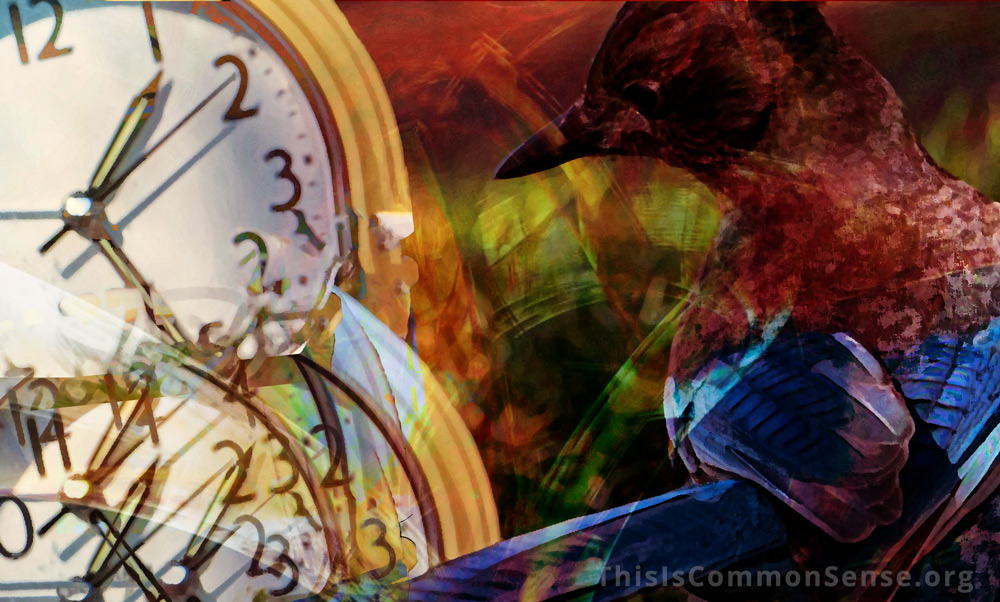Is there a case for switching back and forth to “save daylight”? To me, it seems a typically dumb thing governments do.
I can quote experts who argue that Daylight Saving Time doesn’t save much, and causes no small amount of harm, while others could quote experts saying the opposite.
It really comes down to holding to respectable standards. The reason to oppose Daylight Saving Time is that our time zones should have a touch of truth about them.
Before railroads stretched across America, words like “noon” and “midnight” and “ante meridiem” and “post meridiem” possessed clear meanings in every locality. The morning ended when the Sun was directly overhead (solar noon), and the afternoon began just after.
The hours of the day corresponded to this.
But with railroads, traveling quickly west or east engendered chaos as engineers’ pocket watches provided no real manageable time to schedule trains and keep them to schedule. So time zones were invented, grouping longitudinal neighbors together to make it easy to know when to adjust moving clockwork mechanisms. Still, there was a connection between clocks’ noontime and true noon somewhere in each time zone.
Anyway, Daylight Saving Time (which I’ve written about before) was invented to nudge us to get to work earlier, allowing us more leisure time at day’s end.
On Tuesday, the U.S. Senate voted unanimously to extend Daylight Saving Time the whole year around. No more “Spring forward/Fall back” nonsense.
But also: no more true noon anywhere in America, ever again. Well, considering how gerrymandered the time zones are: far fewer true, solar noon locations.
Another chasm between Man and Nature, courtesy of Government.
This is Common Sense. I’m Paul Jacob.
See all recent commentary
(simplified and organized)
See recent popular posts

3 replies on “Bipartisan Daylight?”
More importantly, America settled on its normal work-hours in response to circadian rhythms, while DST was not in effect at all or held for less than half the year. And path-dependency creates something like a Cournot-Nash equilibrium, stabiluzing those hours. Changing most of the nine-to-five jobs into ten-to-six jobs and so forth is difficult if not impossible. So business hours will be less naturally synched to circadian rhythms.
Morning people will be collecting an incredibly large economic rent at a huge physiologic cost to everyone else.
Well, unless you live on or very near the Equator, the sun is never directly overhead. In the US, the around noon, the sun is in the southern horizon.
Personally I don’t care if we go to standard time or daylight savings time.
Pick one ahd stay there.
Enough of the switching BS.